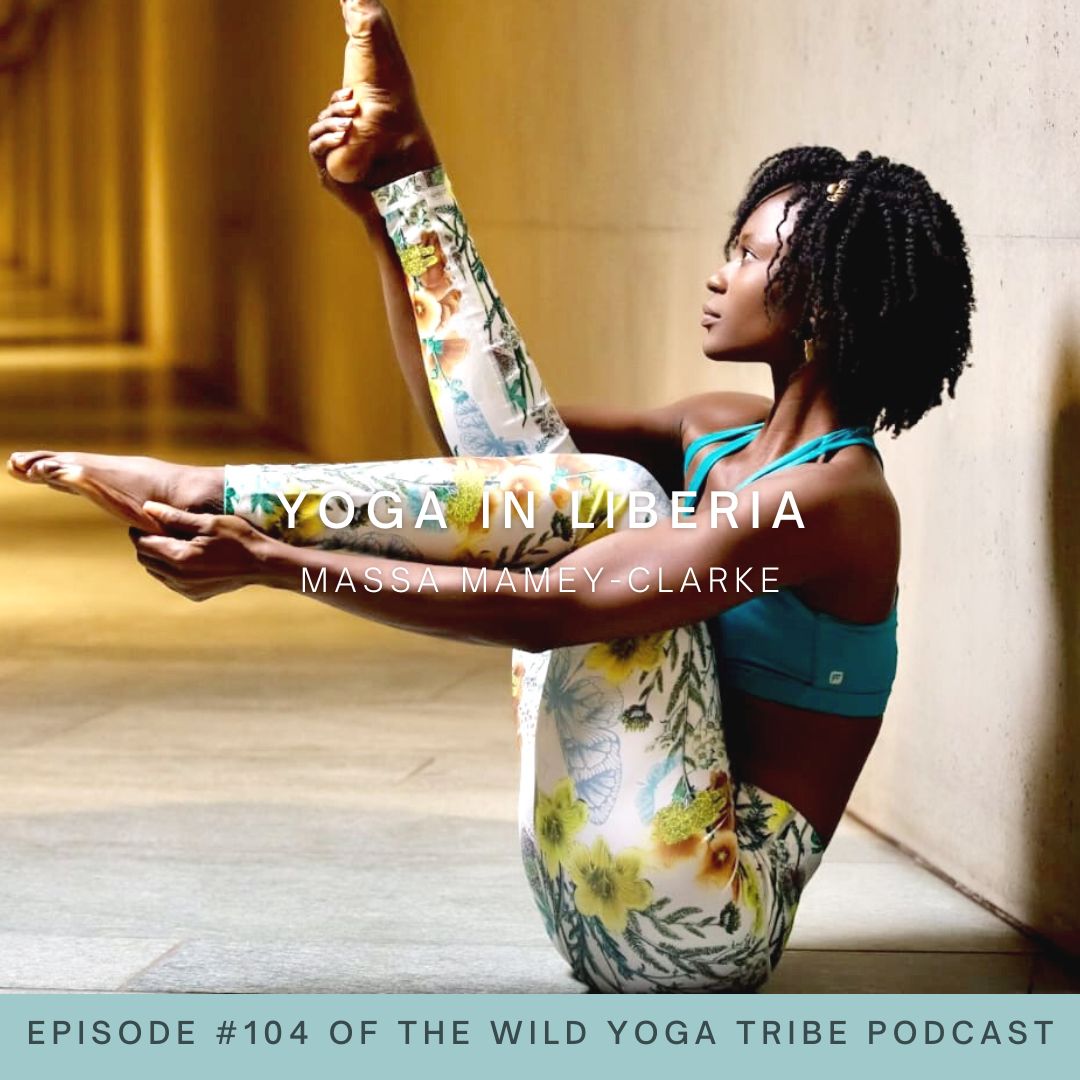
EPISODE #69 – YOGA IN JAPAN
Meet Sachiko Kawabata
Meet Sachiko Kawabata, a yoga teacher from Japan who illuminates the synchronicities of yoga throughout history in Japan and beyond. Welcome to yoga in Japan!
Wild Yoga Tribe Podcast Episode #69 –Yoga Synchronicities – Yoga in Japan with Sachiko Kawabata
Welcome to Episode #69 of the Wild Yoga Tribe Podcast! My conversation with Sachiko Kawabata, a yoga teacher from Japan, was so inspiring as she shared with us her unique perspective on and understanding of yoga. I hope that this conversation made you curious about the relationship between yoga and Taoism, and the yoga synchronicities that happened all over the world in history.
If you’re looking to tune into a podcast episode that is all about yoga for the spirit then this is the conversation for you.
Tell me more about Sachiko Kawabata
Sachiko Kawabata is a yoga teacher from Japan who practices Balinese massage, aromatherapy, macrobiotic nutrition, Chinese medicine, and yoga. She used to have her own studio as a therapist and supported women in search of a new lifestyle based on women’s health and beauty – all rooted in ancient wisdom.
Sachiko feels that the roots of her soul are in the Asian culture. She leads Yin Yoga Japan across all of Japan as a Yin Yoga and Qigong teacher. Her approach is a challenging teaching style that combines both ancient Chinese wisdom and the latest Fascia research from Sports Science. She is convinced that the way we create, use, and store energy with Yin Yoga offers many answers to the questions that she has long been searching for. She has been teaching yoga for over 15 years.
Favorite Quote From Sachiko Kawabata
“Taoism has a surprising amount in common with Hatha yoga. In fact, as a Japanese person, I can easily understand Chinese philosophy, which is based on a common culture and Indian philosophy. I think many people believe that yoga happened only in India. Yoga did not originate only in India. Around the time yoga was born, synchronicities were happening all over the world at the same. Especially in China, there are many common items such as chi. Chi is energy, by the way. So Chi is similar to prana, meridians are similar to nadis.”
What’s in the Yoga in Japan?
Feel like skimming?
The relationship between Taoism and Yoga
Yoga synchronicities all over the world
Chi is energy, similar to Prana and meridians similar to nadis
Yoga is for the spirit
Yoga can’t get rid of all ego, but you can get to know the ego inside you
Connect with Sachiko
https://www.facebook.com/yinyogajapan/
https://www.instagram.com/yinyogajapan
https://vimeo.com/yinyogajapan
https://www.youtube.com/channel/UCbOvCM4TZoKSpaMY1Iw8O0w/featured
Support the podcast:
https://www.patreon.com/wildyogatribe
Want more?
https://wildyogatribe.com/thepodcast/
Everything you need is just one click away! Check out all the resources here: https://linktr.ee/wildyogatribe
PODCAST TRANSCRIPTION
Read + Reflect + Respond
Wild Yoga Tribe Podcast Episode #69 – Yoga in Japan with Sachiko Kawabata Podcast Transcription
[00:00:00] Lily Allen-Duenas: Namaste family and welcome back to the Wild Yoga Tribe Podcast today. I’m so excited to welcome Sachiko Kawabata onto the show today. She’s a yoga teacher from Japan who’s been teaching yoga all over the world for the last 15 years. She teaches Qi Gong and she’s a practitioner of Chinese medicine, macrobiotic nutrition, aromatherapy, and Baliense massage. She’s also taught yoga classes in Malaysia, Vietnam, Turkey, and more. So thank you so much, Sachiko for joining me on the show.
[00:00:37] Sachiko Kawabata: Thank you so much for inviting me.
[00:00:39] Lily Allen-Duenas: Wonderful. I’m excited and I’d love to hear more about your story and how yoga first came into your life.
How did yoga come into your life?
[00:00:47] Sachiko Kawabata: Okay, so I experienced yoga for the first time in Bali nearly 20 years ago. At that time, I quit my corporate job and was in Bali to learn traditional massage from a Bali mentor. So I wanted to do some exercise other than learning massage. So I visited a yoga studio in, I remember attending a very active vineyard class and a traditional hat yoga class yoga, while looking at the scenery of the beautiful rice field.
It was a very good feeling for the first time. Yes, that was my story.
Yoga Barn in Ubud
[00:01:30]
[00:01:30] Lily Allen-Duenas: Oh, that’s amazing. Do you know the name of that yoga studio in Ubud? Was it the yoga barn?
[00:01:36] Sachiko Kawabata: Exactly. Yes.
[00:01:38] Lily Allen-Duenas: Oh wow. I’ve been there as well. That’s so amazing.
[00:01:41] Sachiko Kawabata: Yes.
[00:01:43] Lily Allen-Duenas: It’s a beautiful place. You’re right with all of the jungle and the greenery all around it.
[00:01:49] Sachiko Kawabata: Yes. I have been there, they are not so big studios. They are still small. and after that they move. There was a very big studios like
[00:02:00] Lily Allen-Duenas: Okay. Yeah. Now it’s very big. So you were there before it was in that location, it sounds and so I’m also curious about why did you want to become a yoga teacher? So why do you like teaching yoga and what made you want to become a teacher?
Why do you like teaching yoga?
[00:02:16] Sachiko Kawabata: Yoga is good things about people who are not good at moving their bodies. People with stiff bodies, older people, young people, anyone can practice yoga and changing themselves. Unlike athletes, there is no retirement. I find it very rewarding to support them. The other is adventure as a freelancer. Teaching yoga free my mind, then having freedom under great responsibility. So I feel like that, that’s why I like teaching yoga.
[00:02:54] Lily Allen-Duenas: Oh, amazing. I also agree that there’s freedom, this amazing freedom [00:03:00] to travel or to learn to grow, to immerse yourself in new communities and new cultures or new traditions. I know that you’ve definitely learned so much about. So many cultures and traditions through learning Qi Gong and learning Chinese medicine. Is there anything you want to share about those modalities, about Chinese medicine or about massage or anything else?
[00:03:29] Sachiko Kawabata: now I’m mainly teaching in yoga and, so this in yoga is very related to Chinese medicine also Taoism. So our improved in yoga is Taoism actually. Taoism has a surprising amount in common with Hatha yoga. In fact, as a Japanese person, I can easily understand the Chinese philosophy, which is based on a common culture and Indian philosophy. I think many people believe that yoga was happened only in India. Yoga did not originate only in India. Around the time yoga was born, synchronicities were happening all over the world at the same. Especially in China, there are many common items such as chi. Chi is energy, by the way. So chi similar to prana, meridians similar to nadis. The Hatha Yoga is also related to [00:04:30] Buddhism, yeah, this culture is really interesting. Yoga is really interesting. The yoga is not only yoga . Yes that’s my opinion.
[00:04:41] Lily Allen-Duenas: Amazing. I love hearing more about the relationship of Taoism and yoga and how Chi is energy similar to prana? Meridians are similar to, naughties. I’ve also noticed that. I’ve also said how many. And Chi or pronounced ki sometimes, is so similar to Prana. So I love talking to you about that. I’d also love to hear if you think that there’s anything that people are getting wrong about yoga?
Is there anything people are getting wrong about yoga?
[00:05:07] Sachiko Kawabata: Yeah, so yoga is not just body exercises and stretching. It’s something that allows you to access the spirit beyond the body by focusing on consciousness and breathing together. That is my opinion.
[00:05:25] Lily Allen-Duenas: Okay. I’d also love to hear what is your definition of yoga? I know that we have sutras and texts and so many things that we can read or we can study that provide us with definitions of yoga, but what’s your personal definition?
What is your definition of yoga?
[00:05:41] Sachiko Kawabata: Yoga is not for only bodies. So that’s my definition. Yoga for our spirit.
[00:05:48] Lily Allen-Duenas: I love that. Yeah. Yoga is definitely for the spirit, and when people think it’s only one layer, like just for the physical, they’re missing out on so many things about yoga.
[00:05:59] Sachiko Kawabata: [00:06:00] Yes.
[00:06:01] Lily Allen-Duenas: So is there a powerful lesson that yoga has taught you or a powerful gift that yoga has gave?
What is a lesson yoga has taught you, or a gift yoga has given you?
[00:06:08] Sachiko Kawabata: Yoga Is something that can work on the mind and the spirit through the training of the body. If you can’t get rid of all ego, you can first know that you have an ego inside of you, and you can know that you can be calm and peace without being swayed by various emotions. It can be there as just being as you are, and in the truest sense, you wake up in this world. I think this is the most powerful gift from yoga.
[00:06:42] Lily Allen-Duenas: Amazing. I do think that is such a powerful gift as well, and I love hearing about this huge. Way that yoga gives you a gift, so I was wondering in Japan, what’s yoga like, what was it like in the past and where do you see it going in the future?
What is yoga like in Japan? Hello yoga in Japan!
[00:07:01] Sachiko Kawabata: the history of yoga in Japan is quite long. Starting around the 1960s, there are wonderful things such as books left by Legends at that time. After that, there was a time when yoga had a bad image due to the violent cult group. But since the early 2000s, healthy yoga has risen and is now widely [00:07:30] recognized as a culture in the future it will spread to many people for various purposes, such as treatment, beauty, education, and communication tools. Yes.
[00:07:43] Lily Allen-Duenas: Oh I had no idea that there used to be a violent type of yoga in Japan. What do you mean by that?
[00:07:50] Sachiko Kawabata: There was a very cult group in Japan. That was almost 19, 19 something around, I forget that timing. And then one cult group. That was a very big group. Then they controlled, they were using yoga then control people. It was quite big news in Japan . They killed peoples.
[00:08:15] Lily Allen-Duenas: How strange that yoga people were killing people. Wow.
[00:08:21] Sachiko Kawabata: Super strange.
[00:08:23] Lily Allen-Duenas: So they weren’t probably real yogis, they were just taking some type of yoga, practicing it, and then hurting people, huh?
[00:08:32] Sachiko Kawabata: Yeah. Actually they are religion group, but they then the leader of this religion the, this one said they are yogi. He said he’s yogi. They are not doing yoga only. They do many things. Yoga is just a part of them job, but they are using yoga to control people. They are correct correcting people, all over the Japan. [00:09:00] And of course they correct money a lot. Also, they controlled people. Sometimes it’s too much. Even they killed people, some people. Yeah. It’s so strange.
[00:09:12] Lily Allen-Duenas: Wow. I’m glad that ended. I’m glad that is no longer the case. So what is your kind of, your culture’s response to yoga now here in Japan? What’s going on now with yoga there?
What is going on with yoga today
[00:09:25] Sachiko Kawabata: Yeah, so mostly people think about yoga as fitness or how to say in English, good for health, wellness, easy to enjoy yoga everywhere.
[00:09:40] Lily Allen-Duenas: because there’s yoga studios everywhere in Japan now.
[00:09:43] Sachiko Kawabata: Yes.
[00:09:45] Lily Allen-Duenas: Okay. So it’s very popular,
[00:09:48] Sachiko Kawabata: Yes. Very popular. Yes.
[00:09:50] Lily Allen-Duenas: So for our listeners that Sachiko who don’t know very much about Japan at all, they just maybe have, can think of where it is on a map or maybe they know one thing about it. Can you share with us more about Japan?
What is Japan like?
[00:10:05] Sachiko Kawabata: Surrounded by the sea on all sides and with many volcanoes. Japan is blessed with hot springs, clean water, and delicious food. Japan has a long history and the tradition. I think that the green city and the kindness of the people come from such traditions. At the [00:10:30] current World Cup football match, Japanese supporters always clean up the stadium after the match, regardless of whether the Japanese team wins or loses. These story stories quickly spread around the world on social medias and. In addition, there is that sticks to morality and justice, even though when no one is watching. When we were little, we were told that Othentosama is watching you always. So Othentosama means heaven, the sun or a God. Okay, that’s Japan.
[00:11:11] Lily Allen-Duenas: Wow. Thank you so much for sharing with us. You did that so succinctly. Like in just a minute or two. You told us everything. Thank you. Do you like living in Japan?
[00:11:21] Sachiko Kawabata: Uh, Yes.
[00:11:23] Lily Allen-Duenas: Yeah, I’ve never been, but it’s definitely a country I want to go to. I can’t I can’t imagine anybody who isn’t, very curious or very interested in visiting.
[00:11:32] Sachiko Kawabata: Yeah, please come.
[00:11:34] Lily Allen-Duenas: Thank you. Do you lead any yoga retreats or do you do teach yoga? Because I know you teach yoga all over Japan. So are you teaching retreats or just courses or trainings?
[00:11:45] Sachiko Kawabata: Yes. I sometimes teach yoga retreat and mainly I teach yoga courses like teacher training.
How to get in touch with Sachiko
[00:11:56] Lily Allen-Duenas: Okay, great. So if anybody wants to get in touch [00:12:00] with you, so Sachiko, ask a question or learn more, or if. They’re even planning a visit to Japan. I’m going to link your website and all of your social media accounts in the show notes. So whenever anybody just is listening to the episode, they wanna check out a link of yours.
They can go to the show notes or go to my [email protected] slash yoga in Japan and then you can. Read more about Sashiko, see the show notes, and even find a transcription of this podcast episode so you can read along. So thank you so much, a Sachiko for being on the show with me today. I’ve loved having you here.
[00:12:36] Sachiko Kawabata: Thank you so much. Also, it was really lovely time to talk to you. Thank you.
[00:12:42] Lily Allen-Duenas:
Wild Yoga Tribe Podcast Outro
[00:12:44] Lily Allen-Duenas: Thank you so much for tuning in to this episode of the Wild Yoga Tribe Podcast. My conversation with Sachiko Kawabata, a yoga teacher from Japan was so inspiring as she shared with us her unique perspective on and understanding of yoga. I hope that this conversation made you really curious about the relationship between Taoism and yoga, and also about all these yoga synchronicities that happen all over the world. If you’re looking to tune into a podcast episode that is all about yoga for the spirit, then this is the conversation for you.
Thank you for listening to the Wild Yoga Tribe Podcast. Be well.
The Wild Yoga Tribe, LLC, owns the copyright in and to all content in and transcripts of the Wild Yoga Tribe podcasts, with all rights reserved, including right of publicity.
What’s Okay
You are welcome to share an excerpt from the episode transcript (up to 500 words but not more) in media articles (e.g., The New York Times), in a non-commercial article or blog post (e.g., Elephant Journal), and/or on a personal social media account for non-commercial purposes, provided that you include proper attribution and link back to the podcast URL. For complete transparency and clarity, media outlets with advertising models are also welcome to use excerpts from the transcript per the above.
What’s Not Okay
No one is authorized to copy any portion of the podcast content or use Lily Allen-Duenas’ name, image or likeness for any commercial purpose or use, including without limitation inclusion in any books, e-books, or on a commercial website or social media site (e.g., Instagram, Facebook, etc.) that offers or promotes your or another’s products or services. Of course, media outlets are permitted to use photos of Lily Allen-Duenas from her Media Kit page or can make written requests via email to receive her headshots folder.









